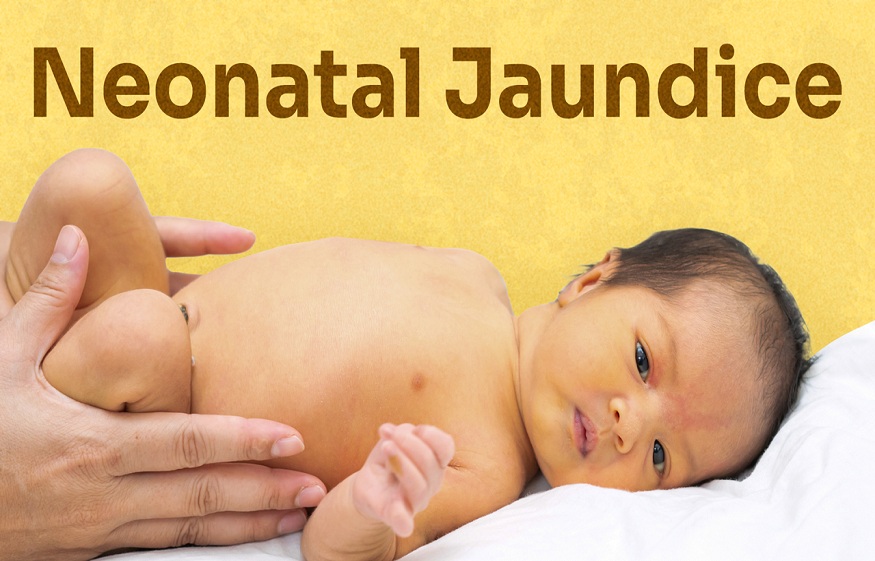
Newborn Jaundice: Causes, Symptoms, and Treatment Options for Parents
Newborn jaundice is a common condition, affecting approximately 60% of full-term infants and 80% of premature babies, usually appearing within the first few days of life. It occurs when a baby’s liver is still maturing and cannot yet efficiently break down bilirubin—a yellow pigment formed from the natural breakdown of red blood cells. High bilirubin levels cause a yellowish tint to the skin and the whites of the eyes, signalling jaundice.
For parents, understanding the causes, symptoms, and available treatments for jaundice in newborns can help in effectively managing this condition.
Causes of Jaundice in Newborns
Jaundice in newborns often results from the baby’s liver being immature and not fully developed at birth. Common causes include:
- Physiological Jaundice: This is the most common type of newborn jaundice, appearing between the second and fourth day of life. It’s considered a normal process as the baby’s liver starts to mature.
- Breastfeeding Jaundice: Some breastfed babies develop jaundice if they aren’t getting enough milk in the first few days. Inadequate feeding can reduce the baby’s ability to eliminate bilirubin.
- Haemolytic Jaundice: This occurs when the baby has a different blood type than the mother (such as Rh or ABO incompatibility), causing the mother’s antibodies to attack the baby’s red blood cells, which causes the levels of bilirubin to rise.
- Prematurity: Premature babies have underdeveloped livers, increasing the risk of jaundice since they are slower at processing bilirubin (NIH).
Symptoms of Newborn Jaundice
The primary symptom of jaundice in newborns is the yellowing of the skin and the whites of the eyes. The yellow discolouration usually begins on the face and then spreads to the chest, stomach, arms, and legs. Symptoms of severe jaundice may include:
- Poor feeding or difficulty waking up
- Lethargy or irritability
- Dark yellow or brown urine (instead of colourless)
- Pale-coloured stools
If you notice these symptoms, it’s crucial to consult a paediatrician, as untreated jaundice can lead to serious complications like kernicterus—a form of brain damage caused by high bilirubin levels. For those in Amritsar, visiting the best paediatrician in Amritsar can ensure timely diagnosis and treatment of newborn jaundice, helping to prevent these complications.
Treatment Options
The severity of jaundice determines how it should be treated. Mild cases often resolve on their own within two weeks, but moderate to severe cases require medical intervention. Treatment options include:
- Phototherapy: This is the most common treatment. The infant is exposed to a unique light that facilitates the breakdown of bilirubin in the skin and facilitates its excretion by the body. Phototherapy is non-invasive and highly effective.
- Intravenous Immunoglobulin (IVIg): For haemolytic jaundice caused by blood type incompatibility, intravenous immunoglobulin may be used to reduce the levels of antibodies attacking the baby’s red blood cells.
- Exchange Transfusion: In severe cases, a blood transfusion may be necessary to quickly reduce bilirubin levels. This procedure replaces the baby’s blood with donor blood to lower the bilirubin concentration rapidly.
- Increasing Feeding: For breastfeeding jaundice, increasing the frequency of feedings can help the baby excrete more bilirubin. In some cases, formula supplementation may be recommended to ensure the baby is getting enough fluids.
To prevent long-term consequences, early detection and treatment are essential. A consultation with a top paediatriciancan help guide you through the appropriate treatment options for your newborn’s condition.
Conclusion
Newborn jaundice is a common but manageable condition that typically resolves with time and treatment. Understanding the causes, symptoms, and treatment options can help you stay proactive in caring for your baby. If you notice signs of jaundice in your newborn, seek prompt medical advice from a paediatrician to ensure proper care and avoid complications.






